 I’ve heard the argument many times: teachers should be paid more. According to the slightly out-of-date figures on the NEA website, the average starting pay for teachers in the 2012-13 school year was $36,141. At least part of the argument is that we could have a better educational system if we paid teachers more.
I’ve heard the argument many times: teachers should be paid more. According to the slightly out-of-date figures on the NEA website, the average starting pay for teachers in the 2012-13 school year was $36,141. At least part of the argument is that we could have a better educational system if we paid teachers more.
Why would we get better educational outcomes if we paid teachers more? The most obvious answer is: we could hire better teachers. The teachers we have now are the best we can get at the salaries we now pay. If we’re happy with the quality of the teachers we now have, we don’t have to pay more.
The pay-teachers-more argument seems to say that our educational system suffers because we pay teachers so little that we can’t get good ones to take teaching jobs. The argument is a knock against the quality of current teachers.
It may be that if we made some institutional changes, such as eliminating tenure, we could get better teachers for the money. And of course, if we retain tenure and increase teacher pay, current teachers would take the pay raise and keep their jobs. So given that we have tenure, paying teachers more money would do little to increase the quality of teachers anyway.
Would the teachers we have now do a better job if we just paid them more? Maybe, but even that argument is a knock against teachers, if they’re slacking on the job because of low pay.
The strongest argument that higher teacher pay would improve education is that it would allow us to replace our current crop of teachers with better ones. The argument is a direct criticism of the quality of our current crop of teachers.
 One would think there is no doubt in anybody’s mind about Fidel Castro’s horrific legacy. And yet we have heard important
One would think there is no doubt in anybody’s mind about Fidel Castro’s horrific legacy. And yet we have heard important 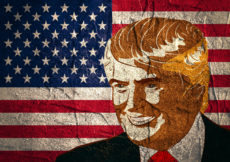 President-elect Donald Trump’s so-called Carrier deal, which seems to amount to a threatening conversation he had with Carrier’s managers, combined with some tax concessions by the state of Indiana, exemplifies the approach he has more or less announced he will take in dealing with U.S. companies that propose to move operations abroad. He threatens that such companies’ products will be subjected to a 35 percent tariff when imported into the USA. In various statements he had made it known that as president he will roam far and wide across the economic landscape, using his presidential powers to punish companies that transfer operations abroad and reward those that refrain from such rearrangements of their operations.
President-elect Donald Trump’s so-called Carrier deal, which seems to amount to a threatening conversation he had with Carrier’s managers, combined with some tax concessions by the state of Indiana, exemplifies the approach he has more or less announced he will take in dealing with U.S. companies that propose to move operations abroad. He threatens that such companies’ products will be subjected to a 35 percent tariff when imported into the USA. In various statements he had made it known that as president he will roam far and wide across the economic landscape, using his presidential powers to punish companies that transfer operations abroad and reward those that refrain from such rearrangements of their operations.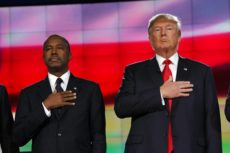 President-elect Donald Trump has tapped neurosurgeon
President-elect Donald Trump has tapped neurosurgeon  The recent death of Cuban dictator Fidel Castro brought forth a
The recent death of Cuban dictator Fidel Castro brought forth a  Public choice uses economic methods to analyze political decision-making. Too often, both “policy experts” and the general public perceive problems and conclude that the government should do something about them, without evaluating whether government intervention could actually make things better. Public choice examines how the political process actually works rather than relying on a hope that if things aren’t ideal, somehow government can improve them.
Public choice uses economic methods to analyze political decision-making. Too often, both “policy experts” and the general public perceive problems and conclude that the government should do something about them, without evaluating whether government intervention could actually make things better. Public choice examines how the political process actually works rather than relying on a hope that if things aren’t ideal, somehow government can improve them.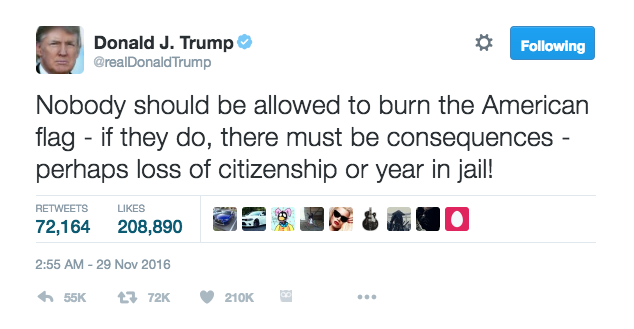
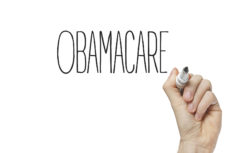 Donald Trump’s
Donald Trump’s 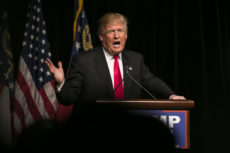 The past year’s political events, especially the campaign for the presidency as it converged on a contest between Hillary Clinton and Donald Trump, have illuminated the way in which ideology, with the identity politics that springs from it, drives a dialectical process: political domination creates resentment, which feeds reaction and, on occasion, revolution against a previously entrenched ruling class and its belief system.
The past year’s political events, especially the campaign for the presidency as it converged on a contest between Hillary Clinton and Donald Trump, have illuminated the way in which ideology, with the identity politics that springs from it, drives a dialectical process: political domination creates resentment, which feeds reaction and, on occasion, revolution against a previously entrenched ruling class and its belief system. Yale University professors Zach Cooper and Fiona Scott Morton have published a new
Yale University professors Zach Cooper and Fiona Scott Morton have published a new 




